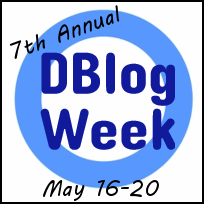We think a lot about the physical component of diabetes, but the mental component is just as significant. How does diabetes affect you or your loved one mentally or emotionally? How have you learned to deal with the mental aspect of the condition? Any tips, positive phrases, mantras, or ideas to share on getting out of a diabetes funk? (If you are a caregiver to a person with diabetes, write about yourself or your loved one or both!)
The mental & emotional side of living with diabetes is the perfect place to use the oxygen mask analogy — yup, that way over-used one. If I’m not making sure that my mental health has on its oxygen mask first, I might as well forget doing ok on the physical side.
Does that mean I have any sure-fire strategies for managing the mental health side? Nope! I certainly get overwhelmed sometimes … especially if things are going wonky with both my own and the Bear’s diabetes. My go-to tools to hang on through tough times:
- Use the number to decide what to do right now — I try not to get caught up in what I did “wrong” that led to the number on the meter screen, and try not to spiral out to the worst case scenario that might come from that number 6 hours from now. Just use the number to make a decent decision in the moment — drink some juice, do a correction. The number isn’t a judgement or a grade, just some information.
- Get outside & move — I’ve never been much of an exercise buff, but it’s amazing what a walk or bike ride can do to improve mood as well as blood sugars. It doesn’t have to be a “work out” or major commitment either… A 10-minute walk around the block is almost always possible, and almost always helps me remember to breathe.
- Vent — Hello DOC! Wallowing really never helps, but a quick vent on twitter can feel really good. Especially when someone says “I know!” and you realize that you’re not alone and you can get on with your day.
One big hole in my current health care is my medical team’s attention (ummm, lack of attention) to the mental health side of diabetes. My first endocrinologist and CDE were amazing in treating me as a whole person living with diabetes. They worked with me to achieve management of my blood sugars so that I could feel physically well enough to do anything I wanted to. At the same time, they acknowledged that diabetes also impacts mental health and helped me access resources (like a fabulous therapist who specialized in chronic illness) without making me feel ashamed or like it wasn’t part of their jobs. My current team is very good at reviewing my blood sugars and helping me make changes to my settings when necessary, but mental health almost never comes up at all.
I’m grateful that my daughter’s pediatric endocrinology practice is very proactive in this area. They talk directly to her, always ask how she is feeling (beyond just physically), and have a social worker/child life specialist in the office. I’ve read a lot about the transition from pediatric endos to adult practices and I worry about what her adult experience will be like. For now, I try to show her that it’s ok to feel sad and to wish that she didn’t have diabetes, but our mental health and happiness isn’t controlled by diabetes… We have so much to be happy about every single day.
Definitely excited to read blog posts on today’s topic! You can too – here.
Want to get involved in Diabetes Blog Week? Read all about it here.


Great tips!
I am happy that your daughter is spoken to directly! She must have a great endo! Thank you for sharing today! ❤
I hope you’re able to find a team soon who acknowledges all aspects of your health!
That would be great but I’m out of options for now unless I want to travel much farther. I’m lucky since I already have a therapist and experience with being an engaged patient who advocates for what I need, physically and emotionally. Thanks for your comment and all your great blogging!
I know exactly how you feel. I often receive “smart” comments that I would be better suited to seeing a councellor, when our HCPs really need to do their part in addressing the “whole” patient too. Great points.